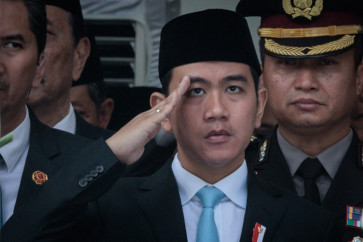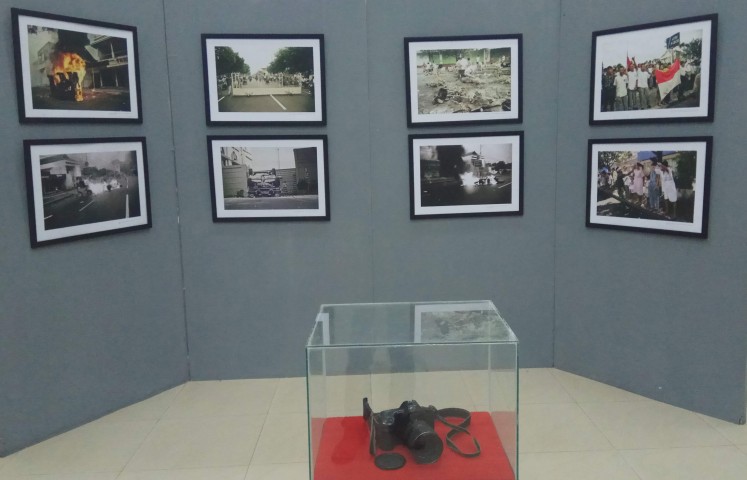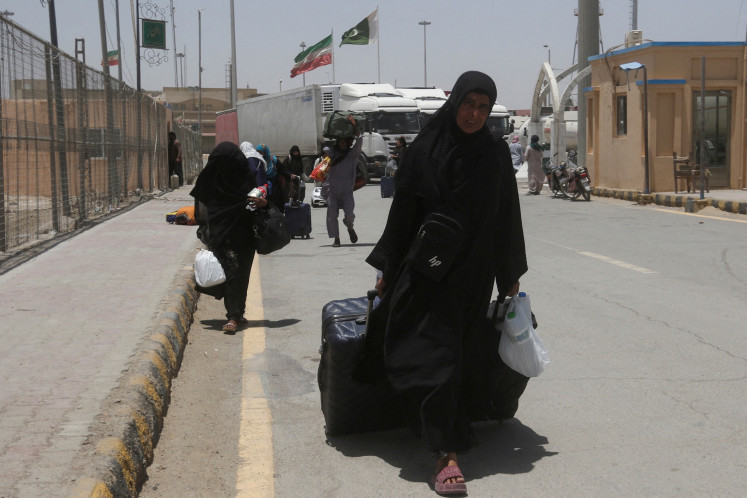Popular Reads
Top Results
Can't find what you're looking for?
View all search resultsPopular Reads
Top Results
Can't find what you're looking for?
View all search resultsGovernment to boost efficiency in spending
The government has said it would review its expenditure plan in the 2019 state budget, particularly in spending of goods, as it aims to improve efficiency without compromising its output as a major component in economic growth
Change text size
Gift Premium Articles
to Anyone

T
he government has said it would review its expenditure plan in the 2019 state budget, particularly in spending of goods, as it aims to improve efficiency without compromising its output as a major component in economic growth.
Its move was seen in the indicative ceiling of Rp 838.6 trillion (US$58.46 billion) in total budget of state ministries and institutions for 2019, which was lower than Rp 847.4 trillion allocated for the same post in the 2018 state budget.
The reduction was due to the government’s attempt to evaluate and assess spending posts to maximize potential output, said Askolani, the Finance Ministry’s director general of budgetary affairs.
“The smaller [budget] does not mean it would not be optimal [in its output],” he said during preliminary talks on the 2019 state budget with the House of Representatives’ budget committee on Wednesday. “If government institutions become more efficient and have more multiplier effects [from their spending], then it will be good.”
Askolani said the indicative budget ceiling was only a preliminary assumption, which the government and lawmakers would discuss further in the coming months as part of the 2019 state budget drafting process.
As the government and the House enter the 2019 budget drafting process, Askolani said the proposed spending allocation in all state institutions would be assessed to pinpoint efficiency measures that could be conducted.
He said the government would scrutinize thoroughly all proposed expenditures for goods procurement, such as spending for official trips, meetings and honorariums.
However, he stressed that budgets for procurement that were closely related to the institutions’ public service programs would not be slashed.
He also said spending on human capital was among the government’s priorities for next year, particularly on vocational education and healthcare programs, among others.
“There will be efficiency [measures] for routine spending,” he said. “We will even evaluate and monitor productive spending.”
Finance Ministry data shows that spending on goods was among the highest-ranking budget posts in government institutions so far.
The government disbursed Rp 84.89 trillion in goods from January to May, or 25.05 percent out of the Rp 338.83 trillion budget ceiling for that post in the 2018 state budget.
Personnel expenditure came second with Rp 76.47 trillion disbursed to state apparatuses over the same period, while capital spending was recorded at Rp 30.86 trillion, the ministry’s data shows.
Meanwhile, Rp 39.25 trillion was disbursed by the government through various social programs from January to May. The number represented 50.8 percent from the allocated budget ceiling of Rp 77.26 trillion in the 2018 state budget as the government moves to accelerate disbursement in social spending.
Acceleration in social spending is expected to stimulate to household consumption, particularly in the middle- to low-income segment.
Eric Sugandi, an economic observer for the Asian Development Bank (ADB) Institute, welcomed the government’s commitment to making its expenditure plan more efficient, saying the move was essential to ensure the budget spending was right on target, while avoid markups.
Eric projected that the government’s efficiency measures would not negatively impact economic growth as it put emphasis on expenditures in subsidy and social sectors.
“Social spending and subsidies are expected to be able to improve people’s purchasing power, so that it would boost household consumption and economic growth [as well],” he said.
While lauding the government’s commitment to improving efficiency in expenditures for official trips and meetings, Mohammad Faisal, executive director of the Center of Reform on Economics (CORE) Indonesia, said the government must ensure that it would not cut budgets for essential posts, or those closely related to development activities.









